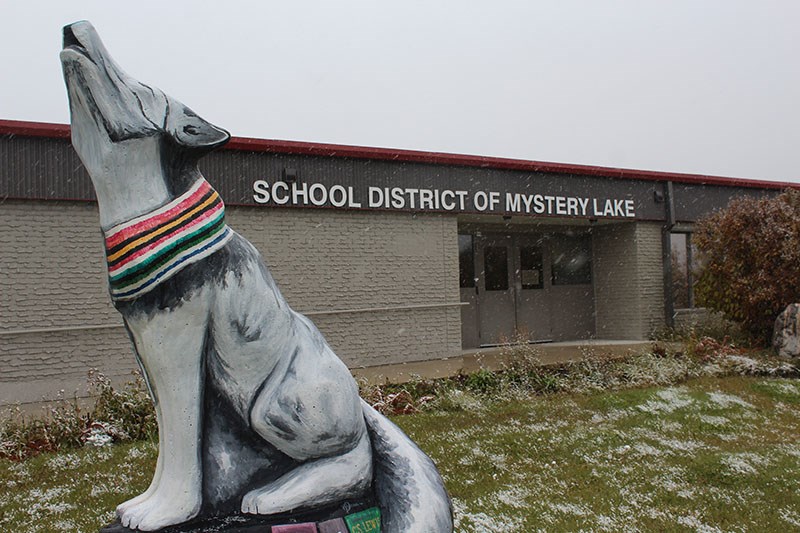The Manitoba government increased its funding for elementary and secondary education by $6.6 million this year – the second straight year that funding has gone up just 0.5 per cent – but the School District of Mystery Lake (SDML) is one of 16 school divisions across the province that will see its funding increase.
The overall budget went up from $1.323 billion to $1.329 billion.
SDML funding increased 2.6 per cent from last year’s level to $32.2 million as a result of an increase in equalization support counterbalanced by a 1.8 per cent drop in enrolment and the phase-out of Tax Incentive Grants, which were designed to help school districts hold the line on taxes. The 2.6 per cent increase is the third-highest of any school district in the province, behind only Division scolaire franco-manitobaine, which saw an increase of 4.8 per cent, and the Western School Division, which got 4.4 per cent more than last year.
The Flin Flon School Division saw its provincial funding rise 1.6 per cent from last year to a total of $9.4 million while the Frontier School Division’s provincial funding went up one per cent to $41.6 million.“This is the highest level of funding in Manitoba history that shows our commitment to Manitoba students despite our current economic realities,” said Education and Training Minister Kelvin Goertzen. “Since 2016, our government has increased funding to school divisions by more than $26 million.
Twenty-one of the province’s school districts saw their funding go down from last year, though all received at least 98 per cent of the previous year’s total. The province has directed school divisions not to increase local education property taxes more than two per cent and is asking them to further reduce administrative costs
“We appreciate school divisions’ efforts to help control costs and create efficiency in the public education system,” said Goertzen. “As divisions create their budgets for the year ahead, we hope they make decisions that consider both students’ needs and the impact on taxpayers.”
The minister also said that the Public Services Sustainability Act (Bill 28), which has yet to be proclaimed, would help reduce financial pressure on school divisions, since about 80 per cent of their budgets go to salaries. The bill creates a four-year period during which public sector employees’ salaries may not go up more than the percentages it specifies – zero per cent in the first two years, 0.75 per cent in the third year and one per cent in the fourth year.
Manitoba NDP leader Wab Kinew said provincial school funding isn’t keeping pace with enrolment and the rate of economic growth.
“Manitoba has returned to the ‘90s,” said a statement from Kinew. “Last year school funding was the lowest it’s been in 20 years. This year [Premier Brian] Pallister is cutting funds for over half of Manitoba’s school divisions. He’s enlisting the help of Filmon’s education minister to lay the groundwork for cuts to teacher and bigger class sizes. This will have serious impacts on students. The Pallister government must fund education properly – by keeping pace with enrolment and the rate of economic growth. Class sizes are getting bigger and that means Pallister’s plan gets a failing grade.”




